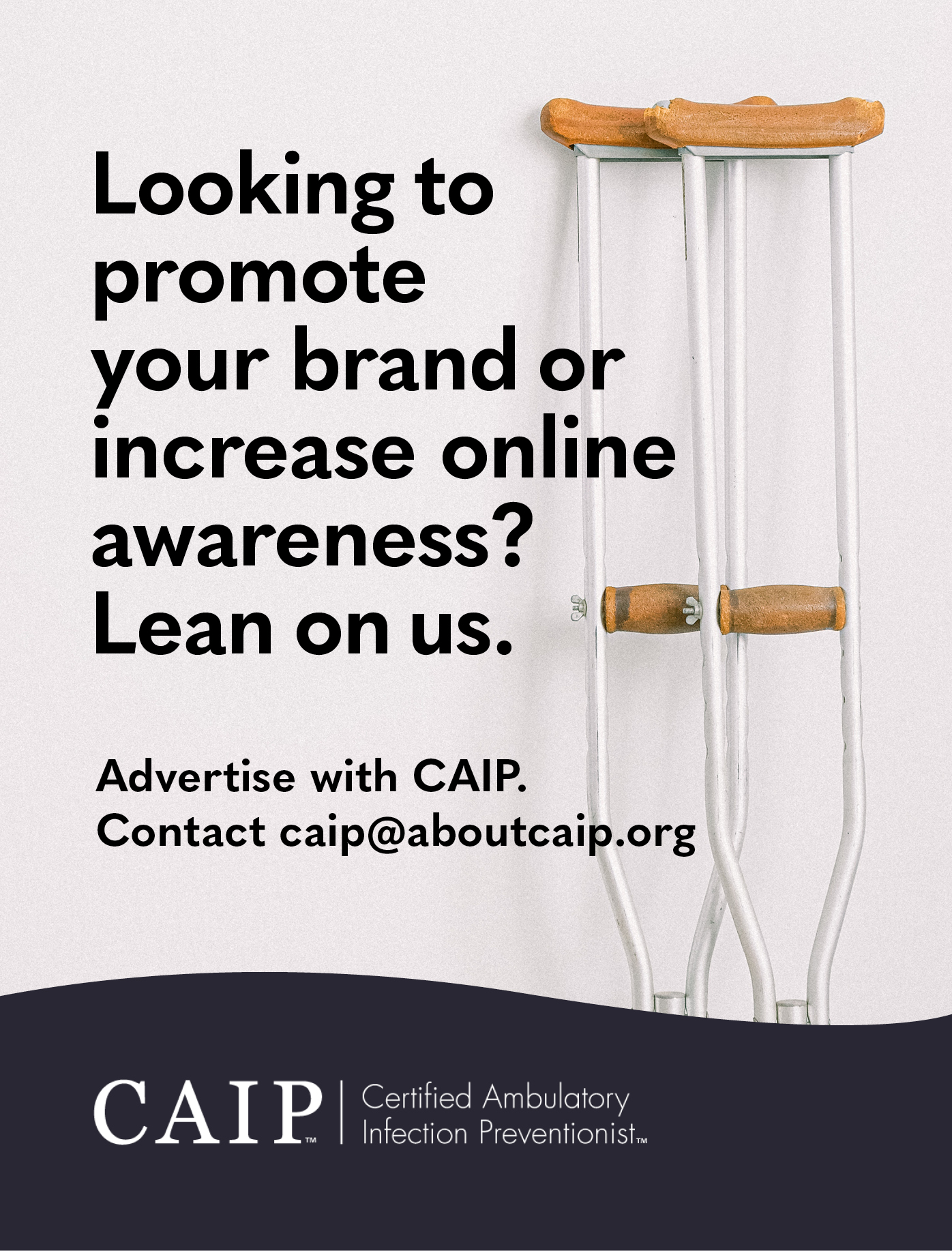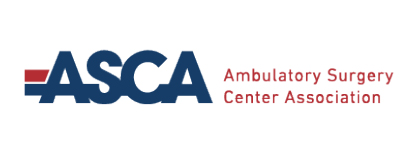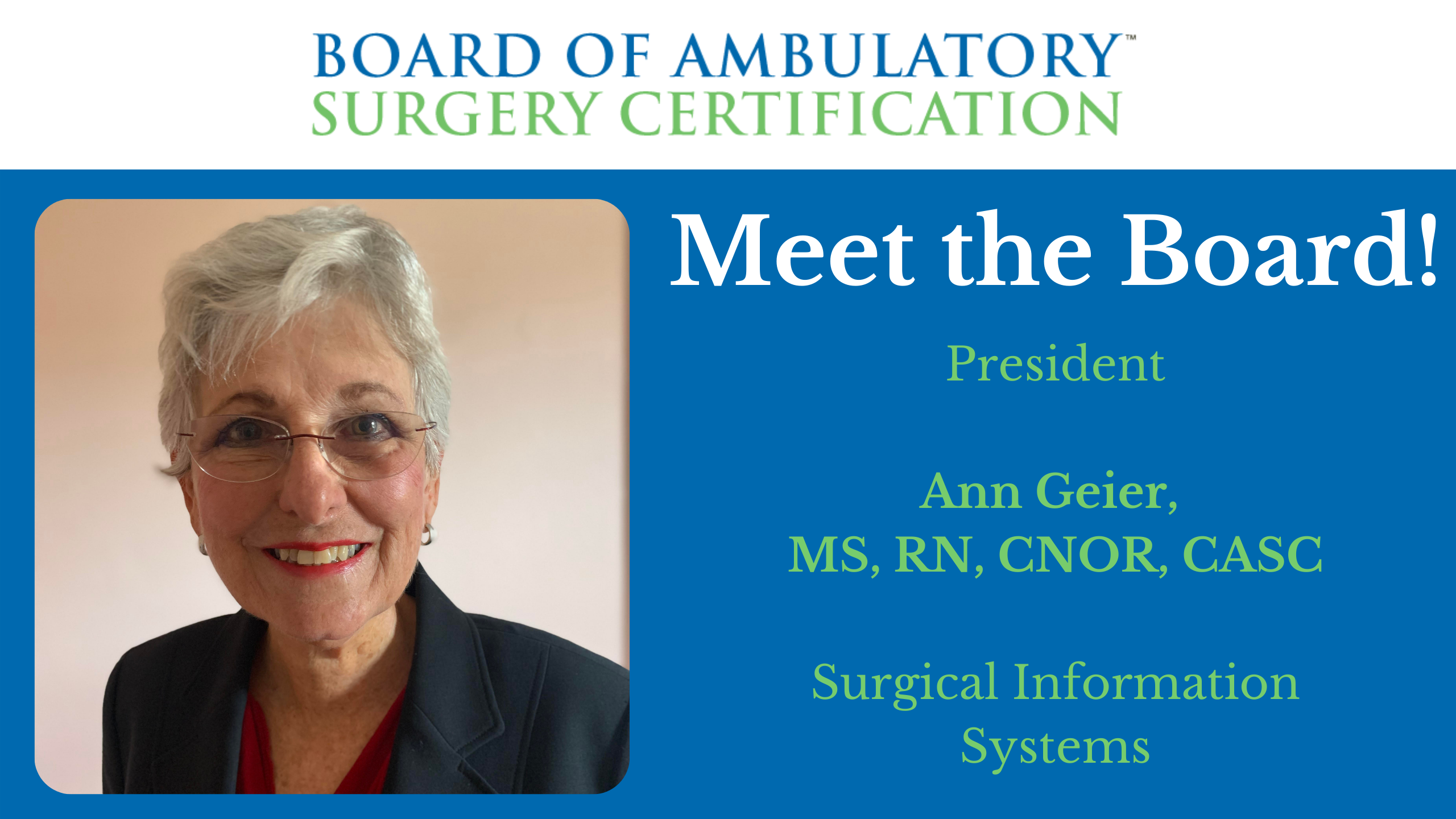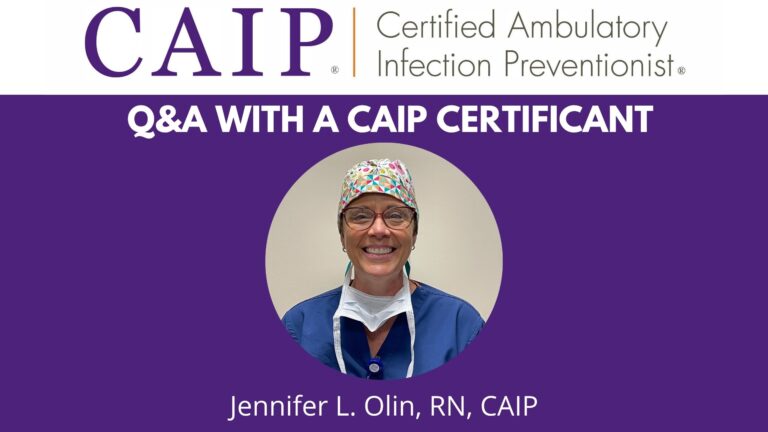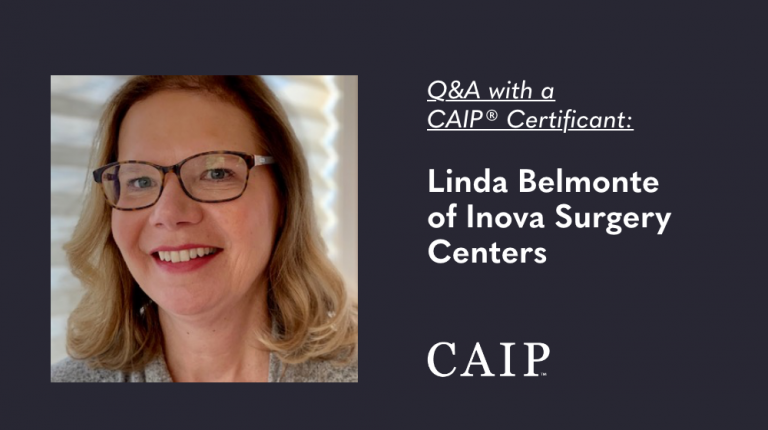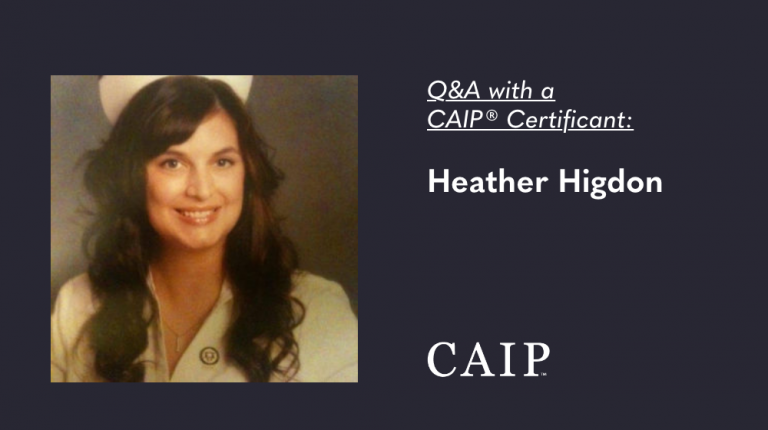Why did you choose to join BASC?
I was among the first to earn the CASC credential in the early 2000s. When I was nominated to serve on the BASC Board, I was proud to participate, as I believe in certification and thought this would be a great way to help recruit more administrators to CASC certification.
When you first heard about BASC what were your initial thoughts?
I was working on my CNOR prior to CASC, so I was a little slow learning about BASC. I thought the Board would be a good source of information and training opportunities for ambulatory surgery administrators and managers, and this has proven true.
What is your favorite thing about being on BASC’s leadership board?
I really enjoy serving with other ASC leaders, people whom I look up to. In my opinion, they are all experts in this industry; they are more than willing to help others who are learning about the industry; and they share their knowledge easily.
How has being a part of BASC helped you professionally?
I believe serving on the BASC Board has helped me realize the complexity of our industry. It is not easy to be an administrator today, and BASC is there to help anyone in our industry who needs the help. Professionally, it is very fulfilling to be a part of this. Personally? I believe in certification as a means of bettering myself through learning. People who know me have heard me say many times, “When I quit learning, it’s time for me to retire.” By working with BASC, I am encouraged to attend meetings, participate in and teach in webinars – to keep learning.
How do you think earning and maintaining the CAIP/CASC credential will benefit certificants and their ASC?
I think that the value of being certified is personal and professional. Unfortunately, not all governing bodies understand the need to be certified, so the certificant must fund their own training, testing, and ongoing education. This is short-sighted, and I hope that this attitude is changing as more people seek certification. The knowledge that certificants bring to the center is extremely valuable and helps to elevate the quality of care provided, and it helps improve the culture of patient safety.
What advice would you give to those individuals who are considering becoming a certificant?
Just do it! Don’t think about it too much. You can reach out to any BASC Board member for help and guidance, as we want to see you succeed.
Is there anything else you would like to add?
We are all under a lot of stress these days, so adding a certification may not be at the top of your to do list. Yet, in some ways, you need the knowledge and support more than ever. Visit our website, and reach out to the Board. We’re there for you.

